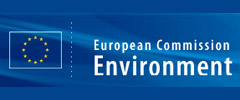Council of Europe: „Slavutych Appeal“ adopted
Five Basic Principles on nuclear safety matters.
06.03.2006 |Anke Stock
The principles are the following:
1. The central role of governments
Global management of nuclear safety on a world scale can only be envisioned on the basis of control by governments players in liaison with the international community. Only governments can raise the necessary resources for education and scientific research, which are essential and are the first step in a long-term preventive policy.
2. The crucial role of local and regional authorities
Local and regional authorities have a decisive part to play, in partnership with central government, involving the citizens and protecting communities.
3. Neighbourhood solidarity
Nuclear safety cannot be confined to one country’s political and administrative boundaries. It requires effective neighbourhood solidarity and transfrontier co-operation, to ensure that each area concerned, irrespective of the country to which it is attached, is a player on an equal footing with all the others.
4. Transparency and information
There must be comprehensive and permanent access to information.
5. Involvement and consultation of the citizens
The populations directly concerned must be involved and consulted under procedures specific to each country, including all forms of direct consultation.”
































